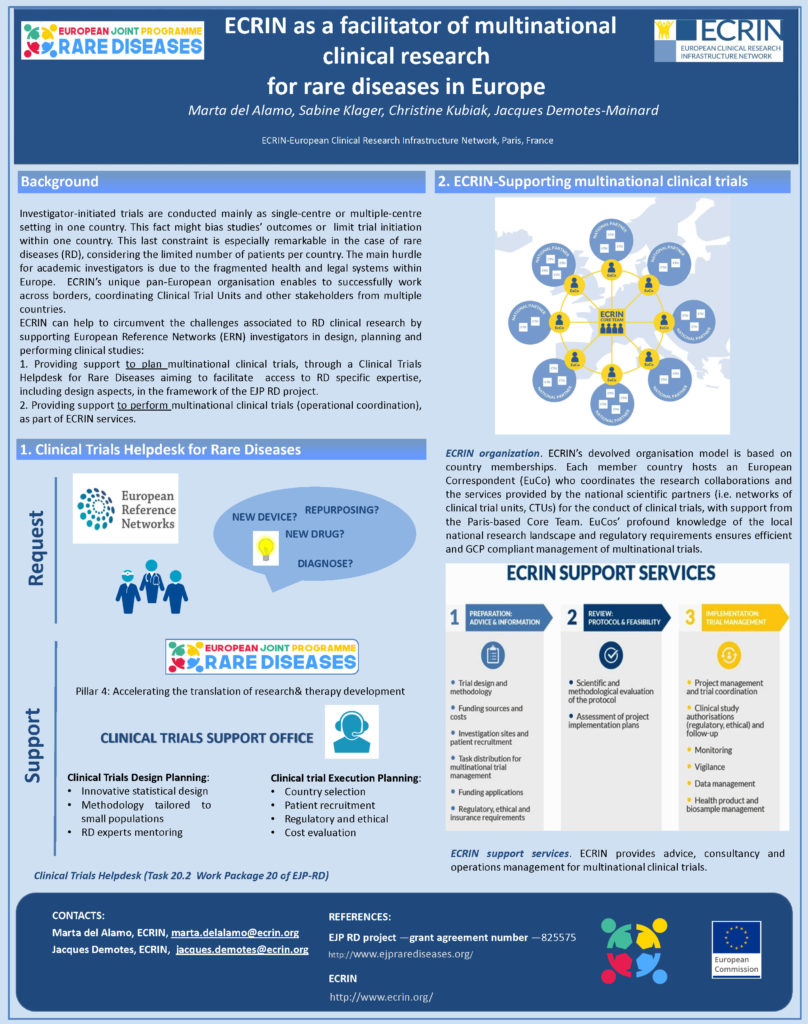The overall objective of this project is to foster the implementation of recently developed innovative methodologies for clinical studies in rare diseases in practical settings as well as to develop innovative tailored methodologies for clinical trials in rare diseases with unmet needs.
The EJP RD project has launched an online Support Office, the Helpdesk supporting European Reference Networks (ERNs) and other clinical teams involved in Rare Diseases. One of the types of assistance offered is ‘Clinical Study support‘. This support is intended for clinical investigators for the preparation of clinical studies for the development of new treatments, drug or device repurposing, or diagnostic studies. Requests for this type of support are managed by ECRIN. How does it Work? Investigators can fill out an online form requesting input on anything from design aspects of a trial, to statistical methodology adapted to small sample size, and more. Form requests are then processed by a dedicated rare disease clinical manager (from ECRIN), acting as the permanent contact point for the Support Office. The RD clinical manager will be supported by ECRIN’s Clinical Operations Manager and medical expert(s) as needed.
The following steps will be implemented:
- Disseminate the latest development in trial methodology including the methodologies proven to be successful for clinical studies in Rare Diseases
- Implementation of innovative methodologies to Rare Disease clinical studies to derive experience in practical settings and understand the value of these methodologies
- Identify unmet needs for tailored methodologies and develop innovative methodologies for Rare Disease clinical studies.
Once validated, agreed and accepted by all stakeholders, the innovative methodologies will encourage the accomplishment of IRDIRC goals. In particular, WP20 activities will intersect the « Small population Clinical Trials » IRDiRC Task Force to tackle the issue of optimization and improvement of commonly adopted approaches to reach agreement between the different stakeholders on appropriate small population studies.

